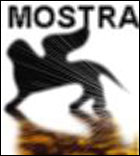Despite its dubious origins as a propaganda
showcase for Mussolinis Italy, the Venice Film Festival enjoys
a well-deserved reputation for having a strong political and
social conscience. The Mostra of 2003 is no exception. The
most intriguing italian films shown at the festival Segreti di stato and Buongiorno, notte, directed by Paolo Benvenuti
and Marco Bellocchio respectively, are deeply political. Segreti di stato, a forensic examination of a massacre of Sicilian
communists in 1947 which boldly implicates the Mafia, the
Italian government, the Pope and Harry S Truman is historically
fascinating if somewhat aesthetically disappointing. Buongiorno, notte, one of the best and most critically acclaimed films
of the festival, is the far more accomplished film. An evocative
and spell-binding account of the anni de piombo, or the
years of the bullet, when the Red Brigade movement was at
its height, it tells the extraordinary true story of the abduction
and murder of Italian prime minister, Aldo Moro. There were
other politically motivated and historically important films
from other parts of the world at the Mostra such as the sensual
and suggestive Pornografia, an atmospheric literary adaptation
set in second world war Poland and Rosenstrasse, a completely
conventional but well-intentioned work by the feminist German
director Margarethe von Trotta which examined the little-known
story of German women who protested the persecution of their
Jewish husbands in the Nazi era.
| |
 |
|
|
One of the most beautiful- and critically
acclaimed- political films of the festival, however, was Le
Cerf-Volant, a lyrical love story between a young
Lebanese girl and Arab Israel soldier set on the border between
Israel and Lebanon. Jacques Doillons Raja offered another
a which offers another portrait of young Arab womanhood. A
more masculinist- and inferior- film, Raja is nevertheless
endowed with a breath-taking central performance. Personifying
the passion, anger and humanity of a young Arab girl in post-colonial
Morocco, the unknown Najat Bessalem shines in the role of
Raja (and won the Marcello Mastroianni prize at the
Mostra). Watching the heroine head-butt her useless boyfriend
is a joy to behold.
The worst political film at the Mostra was Imagining Argentina.
Adapted from an American magical realist novel which recounts
the persecution of left-wing activists in Fascist Argentina
of the 1970s and 1980s, marrying graphic scenes of torture
with utterly daft fantastical moments, Imagining Argentina
is completely irresponsible- and almost beyond description.
More happily, two very different American directors enjoyed
considerable success with their documentary films. In Persona
Non Grata, Oliver Stone takes us on an energetic foray
into Palestine et procures some fascinating interviews with
both sides of the conflict- including the Al Aqsa Brigade,
Hamas and the Israeli government. Jonathan Demmes The Agronomist
is an intelligent and powerful portrait of Jean Dominique,
an extraordinary Haitian journalist who fought courageously
for press freedom in his country. Indeed many of the documentaries
at the Mostra such as Persona Non Grata, The Agrononomist
and Gulu (a sociological and political study of a town in
war-torn Uganda by Italian director Luca Zingaretti) were
far more challenging and fascinating than many of the narrative
films.
|